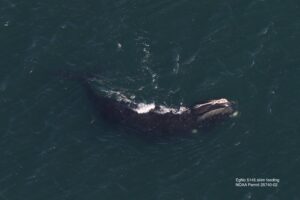
WELLFLEET – Cape Cod’s waters are part of a natural and wild marine ecosystem with a rich diversity of sea life, including sharks and seals. Seals are the major prey species for the great white shark. Sharks often feed on seals close to shore, and they’ve been observed near swimming beaches.
While it is rare for a great white shark to bite a human, since 2012, sharks have bitten people three times in the waters off Truro and Wellfleet. One bite, in 2018, resulted in a fatality. With coastline topography changes and sharks and seals in the ocean, any level of activity in the water, whether wading, swimming, or surfing, will pose a different degree of risk.
Everyone going into the ocean should exercise caution and be willing to assume the level of risk associated with their behavior prior to entering the water.
If you decide to venture into the waters off Cape Cod, learn how to be Shark Smart.
Be Shark Smart
Be aware sharks hunt for seals in shallow water.
Stay close to shore where rescuers can reach you.
Swim, paddle, kayak, and surf in groups. Don’t isolate yourself.
Avoid areas where seals are present.
Avoid areas where schools of fish are visible.
Avoid murky or low-visibility water.
Limit splashing.
Follow all signage and flag warnings at beaches and instructions of the lifeguards.
If You See a Shark and a Lifeguard Is on Duty
Notify a lifeguard if a shark is sighted
Water will be temporarily closed to recreational activities.
Beach goers will be notified when they can reenter the water
Beach & Ocean Safety Basics
Follow all signage and flag warnings at beaches and instructions of the lifeguards
Never turn your back to the ocean
Be alert for rip currents, shore break, and strong undertows
If caught in a rip current:
Remain calm to conserve energy, and think clearly
Don’t fight the current. Swim out of the current in a direction parallel to the shoreline
When out of the current, swim towards the shore
If you cannot swim out of the current, float or calmly tread water
If you cannot reach the shore, draw attention to yourself — wave your arms and yell for help
If you see someone in trouble — get help from a lifeguard. If there is no lifeguard on duty, call 911
Sand collapses easily; do not climb slopes or dunes, as undercut cliffs can collapse at any time without warning
Deep holes can lead to burial and suffocation; do not dig holes deeper than knee level of the smallest person in your group.
























